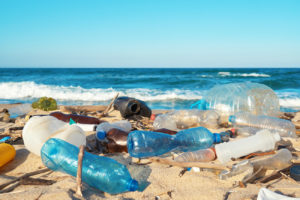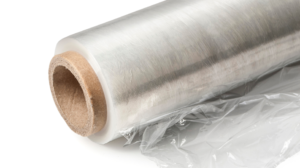G7 Ocean Plastics Charter
A key outcome of the G7 Summit in June 2018, the Ocean Plastics Charter was initially adopted by Canada, France, Germany, Italy, the United Kingdom, and the European Union. The Charter outlines concrete actions to eradicate plastic pollution, and recognizes the need for urgent action to address the devastating impacts of marine litter on the health and sustainability of our oceans, seas, coastal communities, and ecosystems.
Key Commitments under the Ocean Plastics Charter:
1. Sustainable design, production and after-use markets
- Working with industry towards 100% reusable, recyclable, or, where viable alternatives do not exist, recoverable, plastics by 2030.
- Taking into account the full environmental impacts of alternatives, significantly reducing the unnecessary use of single-use plastics.
- Using green public procurement to reduce waste and support secondary plastics markets and alternatives to plastic.
- Working with industry towards increasing recycled content by at least 50% in plastic products where applicable by 2030.
- Supporting secondary markets for plastics including using policy measures and developing international incentives, standards or requirements for product stewardship, design and recycled content.
- Working with industry towards reducing the use of plastic microbeads in rinse-off cosmetic and personal care consumer products, to the extent possible by 2020, and addressing other sources of microplastics.
2. Collection, management and other systems and infrastructure
- Working with industry and other levels of government, to recycle and reuse at least 55% of plastic packaging by 2030 and recover 100% of all plastics by 2040.
- Increasing domestic capacity to manage plastics as a resource, prevent their leakage into the marine environment from all sources, and enable their collection, reuse, recycling, recovery and/or environmentally-sound disposal.
- Encouraging the application of a whole supply chain approach to plastic production toward greater responsibility and prevent unnecessary loss, including in pre-production plastic pellets.
- Accelerating international action and catalyzing investments to address marine litter in global hot spots and vulnerable areas through public-private funding and capacity development for waste and wastewater management infrastructure, innovative solutions and coastal clean-up.
- Working with relevant partners, in particular local governments, to advance efforts to reduce marine litter and plastics waste, notably but not exclusively in small island and remote communities, including through raising awareness.
3. Sustainable lifestyles and education
- Strengthening measures, such as market-based instruments, to prevent plastics from entering the oceans, and strengthening standards for labelling to enable consumers to make sustainable decisions on plastics, including packaging.
- Supporting industry leadership initiatives and fostering knowledge exchange through existing alliances and other mechanisms.
- Promoting the leadership role of women and youth as promoters of sustainable consumption and production practices.
- Support platforms for information sharing to foster awareness and education efforts on preventing and reducing plastic waste generation, plastics pollution and eliminating marine litter.
4. Research, innovation and new technologies
- Assessing current plastics consumption and undertaking prospective analysis on the level of plastic consumption by major sector use, while identifying and encouraging the elimination of unnecessary uses.
- Calling on G7 Ministers of Environment at their forthcoming meeting to advance new initiatives, such as a G7 Plastics Innovation Challenge, to promote research and development of new and more sustainable technologies, design or production methods by the private sector and innovators to address plastics waste in the oceans with a focus on all stages of the production and supply chain.
- Promoting the research, development and use of technologies to remove plastics and microplastics from waste water and sewage sludge.
- Guiding the development and appropriate use of new innovative plastic materials and alternatives to ensure they are not harmful to the environment.
- Harmonizing G7 science-based monitoring methodologies.
- Collaborating on research on the sources and fate of plastics and their impact on human and marine health.
5. Coastal and shoreline action
- Encouraging campaigns on marine litter in G7 countries with youth and relevant partners to raise public awareness, collect data and remove debris from coasts and shorelines globally.
- Accelerating implementation of the 2015 G7 Leaders’ Action Plan to Combat Marine Litter through the Regional Seas Programs, initiatives led by RFMOs, where appropriate, and targeted investments for clean-up activities that prove to be environmentally sound in global hotspots and priority areas, in particular on Abandoned, Lost or Otherwise Discarded Fishing Gears (ALDFG) and wastes generated and collected by fishery activities.
Signatories:
Governments
- Canada
- European Union
- France
- Germany
- Italy
- United Kingdom
- Jamaica
- Kenya
- Mexico
- Norway
- Republic of the Marshall Islands
- Netherlands
- Senegal
- Nauru
- Palau
- Cabo Verde
- Myanmar
- Samoa
Businesses and organizations:
- A&W Food Services of Canada Inc.
- Clean Foundation
- Develop Nova Scotia
- Enerkem
- IKEA
- Loop Industries Inc.
- Nestlé
- Oceans North
- One More Generation
- OneLessStraw
- Precovery Labs
- Pyrowave
- Sea Going Green
- Sky PLC
- The Coca-Cola Company
- The Tare Shop
- Unilever
- Volvo Car Group
- BASF Canada, with a commitment to implementing sections 3 and 4.
- Walmart, with a commitment to achieve 100% recyclable private brands packaging by 2025.
- ACME Containers Limited
- African Institute at the University of Lagos
- BIDCO Africa Limited
- BioCellection
- Capwell Industries LTD
- Coca Cola Beverages Africa-Kenya
- Cooper K Brands LTD
- Dunia Designs
- General Plastics
- General Printers Limited
- Global Initiatives
- Greenplast International LTD
- Kenya Association of Manufacturers (KAM)
- Kenya Association of Tour Operators
- KEPSA/Sustainable Inclusive Business
- Kevian Kenya Ltd
- Kibra Green
- Mayers Natural Spring Water – Kenya
- Melvin Marsh International Limited
- Packaging Industries Limited
- PETCO Kenya
- Plastic Energy
- Polyflex Industries Limited
- Pride Industries Limited
- Scrumptious Eats Kenya
- Skanem Interlabels Nairobi Limited
- Stop! MicroWaste
- Sunworld Safaris
- Sustainable Environmental Development Watch (Suswatch)
- T3 (Trash Thread Textile)
- Turtle Bags
- Unilever East Africa
- University of Nairobi
- X-Calibur Construction Chemistry (EA) Ltd



